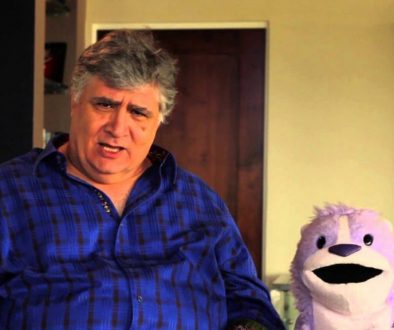A Dec. 7th article from The LA Times from Dec. 7th discusses the contract dispute between The Screen Actors Guild and video game companies, with interview quotes from voice actors Dave Whittenberg and Dee Bradley Baker (the article also includes a photo and audio clip of Baker performing).
The article reveals some interesting facts which are related to some of this blog’s top searches, such as “what do voice actors earn” which Whittenberg states as “roughly $30,000 a year from his video game work and, like most of his peers, supplements that income by doing voice work for animated TV shows.”
And even in a sluggish US economy, the Times article states that the “U.S. video game industry revenue has more than doubled since 2005 to $21 billion in 2008 — about twice the amount of movie ticket sales in Canada and the U.S.”
But video game developers are largely hiring non-union voice talents which make up 80% of the work available, leaving a significantly smaller percentage to union talents.
“The concern going forward is that as these games become larger and larger and generate more income, we as actors won’t see any more money when we walk out the door,” said Wittenberg.
In response, The Times interviews Attorney Scott Witlin, “who represented video game publishers in the recent labor negotiations, disputes the notion that actors are being shortchanged”:
If you look at the total contribution either in terms of hours that go into the creation of a game or the earnings of the people who make the games, voice talent represents a minute percentage.
Casey Hudson, director for Electronic Arts’ Mass Effect 2 says:
It used to be that there wasn’t very much data available for voice acting, and what we had tended to be cartoonish.
Later, with the advent of higher-capacity compact discs, characters started to speak a few dozen or hundred lines in games. But voices were still often performed by amateur actors or even the game developers themselves, because many companies didn’t think spoken dialogue was important enough to merit spending money on professionals.
In the last decade, however, as the video game industry has transitioned to DVDs and the storytelling ambitions of many game developers have blossomed, hiring experienced actors has become routine.
Hudson adds that Mass Effect 2 has a massive cast, with “90 actors playing 546 characters who speak about 31,000 lines of dialogue.”
The greatest issue that SAG is addressing in this contract dispute is the pay scale for actors performing “atmospheric voices — words and sounds for the incidental characters — bartenders, soldiers, elves, random monsters — in war and fantasy games that involve large crowds.”
What SAG is proposing is that “actors would receive a fee of about $800 for performing up to 20 atmospheric voices (up to 300 words per voice) in a four-hour session. Actors who perform ‘principal characters’ — defined as those that drive the story — would fetch the same fee for doing up to three character voices, and more than double the amount if they do six to 10 voices during a six-hour session.”
The video game companies countered by offering only a 2.5% wage increase. And according to the LA Times, the voice actors don’t seem to be pleased with either option, stating that “an influential group of Hollywood voice actors has strongly opposed the contract”:
They contend that the provision would require them to do substantially more work for roughly the same pay and put undue stress on their vocal cords, notwithstanding a provision in the agreement to protect actors against “vocal stress.”
“Before, you were doing three characters dying a horrible death. Now you’re doing 20 characters dying a horrible death,” said Dee Baker, a veteran voice actor who has worked on such games as Halo 2 and Spore, in which he voiced entire races of evolving alien creatures. “Not only will this mean less money for more experiences, it’s also going to be a lot more vocally difficult.”
But SAG’s primary goal in the negotiations is “to give the companies more incentive to hire union talent”:
“One of the things we’d like to do is improve the union’s footprint in this area of production,” said Mathis Dunn Jr., an assistant national executive director of AFTRA. “A lot of employers are not signatories to our contract, and part of the reason is that we can’t accommodate their budget. . . . This will keep us in the game.”
If you’re waiting for the inevitable editorial commentary, I’m sorry to disappoint you. I must bow out of the discussion on this one, since I’m a non-union talent living in a right-to-work state who unfortunately cannot find enough union work available in the state to merit joining the union. But I’ll definitely be keeping a close eye on the developments with this story.
And if you’d like more informed and insightful opinions on the subject, here are some I dug up for your perusal:
– From animation/comics writer and voice director Mark Evanier:
Actors who do voices for video games are concerned about the pay scales for what they do…and rightly so. Some of those jobs involve doing literally thousands of lines of dialogue and/or screaming for hours on end. I have one friend who spent two days recording a game…for not-wonderful money. And at the end of the second day, his throat was so raw that he couldn’t talk (i.e., work) for almost a week.
– Comment thread from Kotaku.com.au: Paid Less to Die More: The Actors’ Union’s Beef with Video Games.
– Discussion on Voice-Overs.com with posts by veteran video game VO pros J.S. Gilbert and Bob Bergen.
– A Joystiq.com news post on the LA Times article ignites a rather heated comment thread between gamers, industry professionals, and aspiring voice actors.
– Video game writer Jeff Spock guest blogs on Gamasutra.com with his thoughts on the LA Times article.


